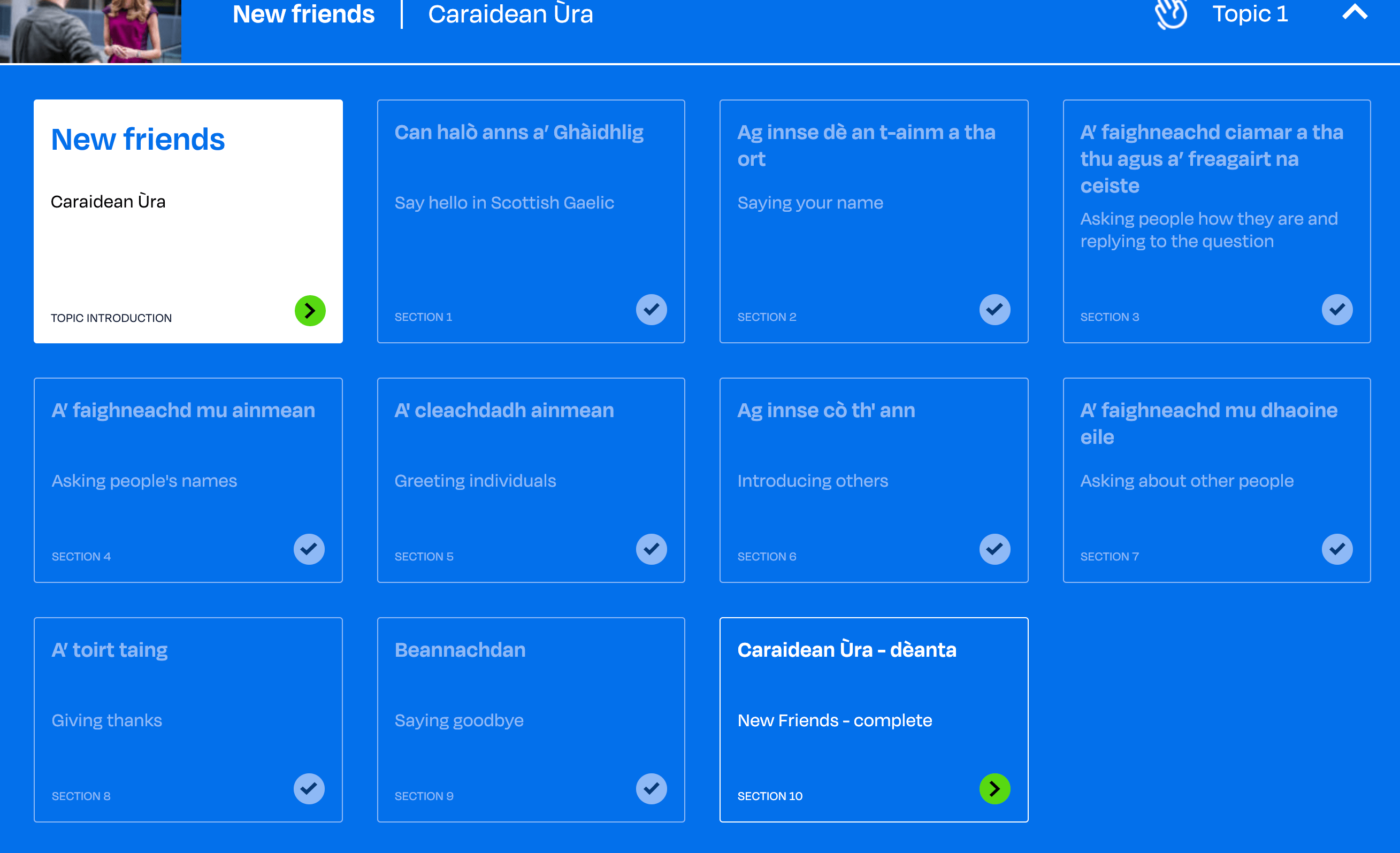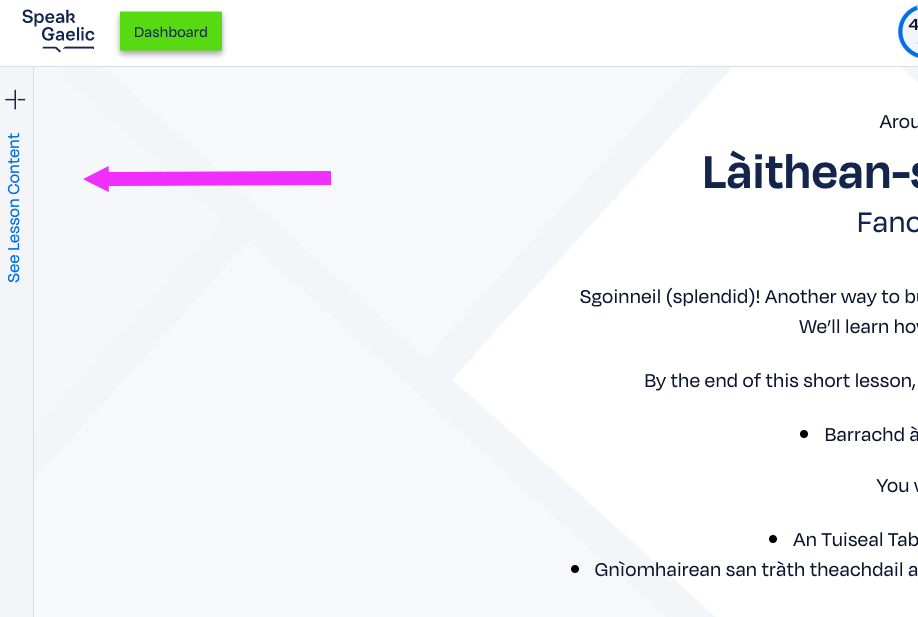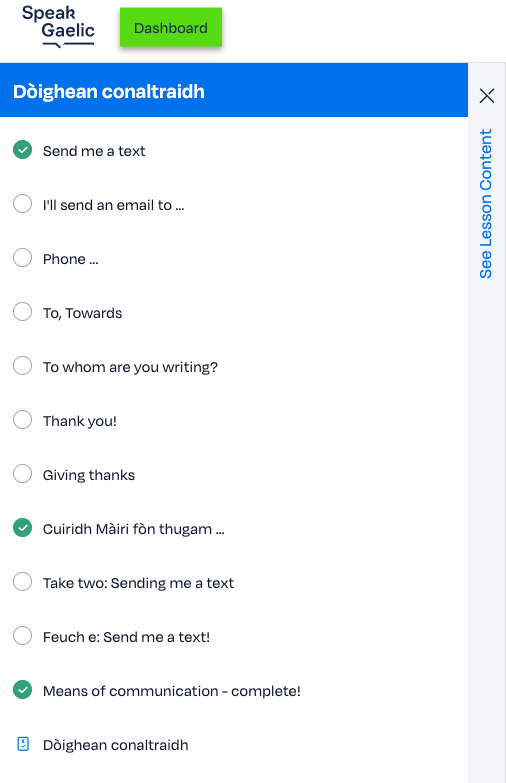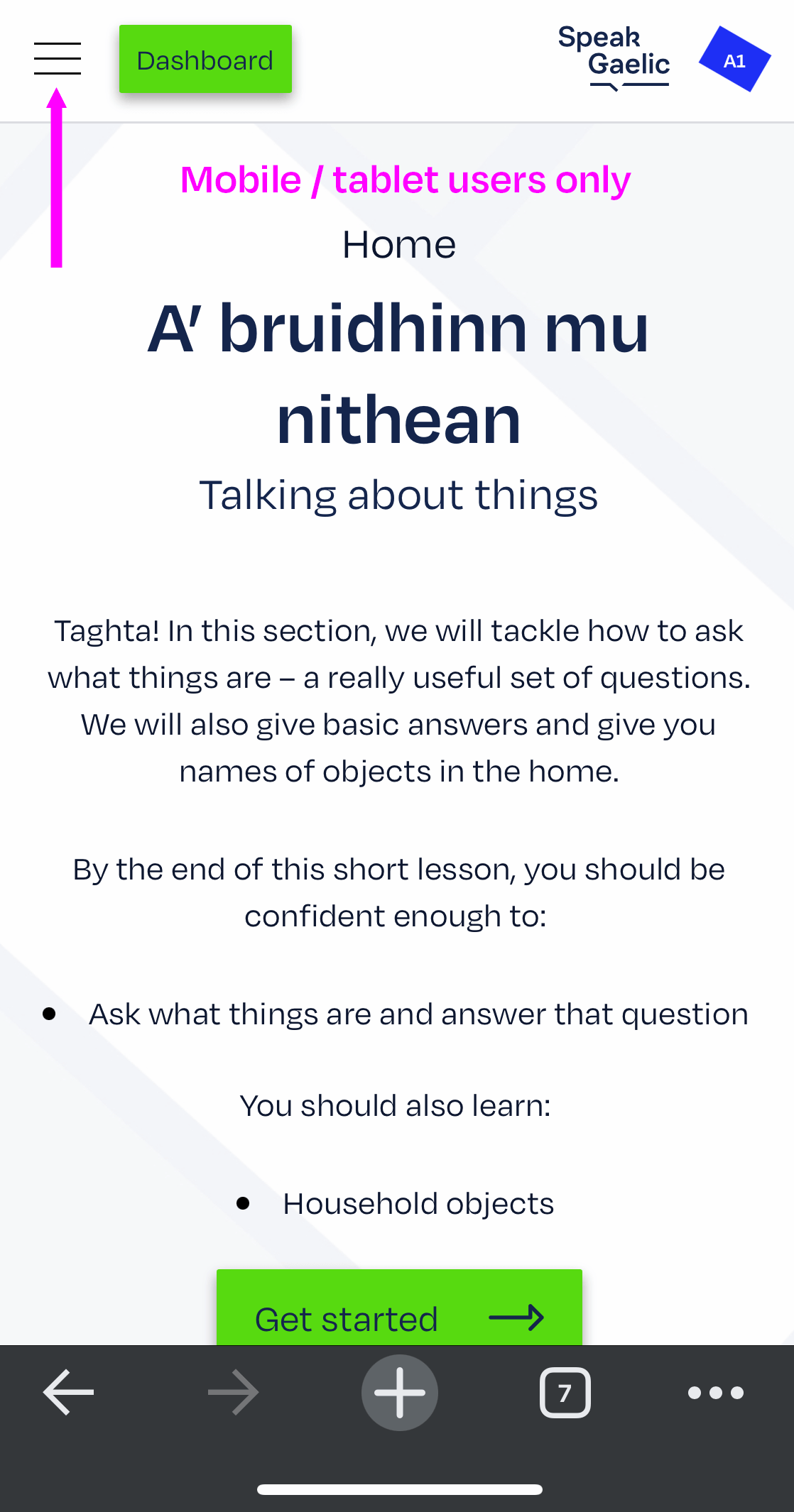Bilingual transcription: Dè tha ceàrr ort?
Bilingual transcription: What’s wrong with you?
Watch this clip where Joy gives us some of her useful tips and favourite phrases.
JOY
Let’s start with the question:
Dè tha ceàrr ort? What’s wrong with you? Dè tha ceàrr ort?
Now, if you’re fortunate enough that there’s nothing wrong with you, you can answer that question using a single sentence,
Chan eil sìon / ceàrr orm, There’s nothing wrong with me, Chan eil sìon ceàrr orm.
You may also hear càil used in different dialects, for example in Lewis, but it means the same, there’s nothing wrong, chan eil sìon, neo càil, ceàrr orm.
Of course, if there is something wrong, it’s important to be able to tell someone. And you’ll remember that in episode four of this series we talked about ailments and feelings being ‘on us’ orm or oirnn.
So, let’s take a very useful example, cnatan, which is the cold. If you have a cold, you’d say:
Tha an cnatan orm. I have the cold. Tha an cnatan orm.
With your cnatan you might also have a cough. And to say you have a cough, it’s:
Tha casad orm. I have a cough. Tha casad orm.
If you were coughing, you would be a’ casadaich, coughing, a’ casadaich.
To talk about pain in Gaelic, you can use either pian, pian or cràdh, cràdh.
Now, an example of something which can be very painful is toothache. In Gaelic, an dèideadh, toothache, an dèideadh.
So to tell someone you have toothache, it’s:
Tha an dèideadh orm, I have toothache, tha an dèideadh orm.
What if you’ve been injured? Well in this case, you would use:
Tha mi / air mo ghoirteachadh. I’m hurt or injured. Tha mi air mo ghoirteachadh.
If you wanted to talk about a particular injury, you could say Ghoirtich mi mo … I injured my, ghoirtich mi mo … followed by whatever it was you had hurt. For example, Ghoirtich mi mo ghlùin. I injured or hurt my knee. Ghoirtich mi mo ghlùin.
Ach tha am prògram seo mu dheidhinn slàinte agus sunnd!
To say something is improving, we use the word:
piseach, improvement, piseach. In a sentence we use it with a’ tighinn air, coming on, a’ tighinn air.
So you could say:
Tha piseach a’ tighinn / air mo shlàinte, my health is improving, tha piseach a’ tighinn air mo shlàinte.
Another word you will sometimes hear when talking about something improving and healing is feabhas, feabhas and to use that in a sentence we would say that whatever we’re talking about is a’ dol am feabhas, healing, a’ dol am feabhas.




